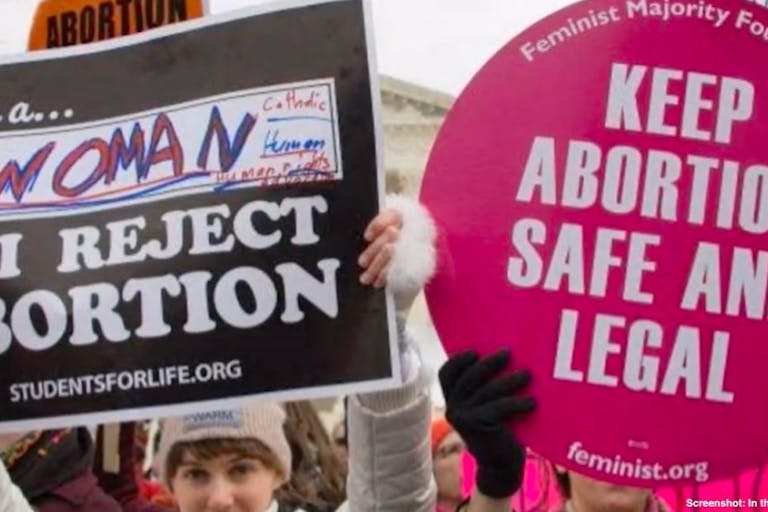
Australian woman donates organs after self-administering deadly suicide drugs
Cassy Cooke
·
Analyzing the findings of the WSJ’s latest poll on abortion
(National Review) Last week, the Wall Street Journal released the results of a poll of public opinion on abortion, conducted with the National Opinion Research Center (NORC). The poll surveyed more than 1,000 adults in May, after Politico published a leaked draft of Supreme Court justice Samuel Alito’s majority opinion in Dobbs v. Jackson Women’s Health Organization. The results of the poll seem to suggest that there has been a significant increase in public support for legal abortion. For instance, the survey found that 57 percent of respondents said women should be able to obtain an abortion “for any reason,” an increase of 14 points from a 2016 NORC survey asking the same question.
There are several reasons why pro-lifers needn’t be especially concerned by the results of this survey. First, a poll conducted in the aftermath of the leaked draft opinion likely doesn’t provide the most accurate reflection of public attitudes toward abortion. Most subsequent media coverage was unsympathetic to the pro-life position, and it is possible that the negative coverage could have temporarily increased public support for abortion.
Second, it has historically been the case that, when pro-lifers appear poised to make policy gains, there is an attendant and temporary uptick in public support for legal abortion. During the late 1980s and early 1990s, before the Supreme Court’s decisions in Webster v. Reproductive Health Services and Planned Parenthood v. Casey, several polls showed a substantial increase in public support for legal abortion that later disappeared.
READ: This week’s mainstream media polls on Roe v. Wade continue to mislead
Third, in recent years, multiple polls conducted by NORC have shown an increase in support for legal abortion. NORC conducts the General Social Survey (GSS) which has asked respondents the same questions on abortion since the early 1970s. Specifically, the GSS asks whether abortion should be legal in a range of different circumstances. Since the 1980s, the GSS has typically found that majorities oppose abortion in cases where the woman is A) low income, B) unmarried and does not want to marry the man, or C) married but does not want to have more children.
However, starting around 2018, that began to change, and a higher percentage of GSS respondents indicated that they would support legal abortion in these three circumstances. This suggests that there may have been a shift in NORC’s sampling mechanism, affecting the outcome. Also around 2018, the GSS introduced new questions on abortion, asking whether the respondent would help a close friend or family member who was obtaining an abortion. Individuals’ responses to abortion survey questions are often sensitive to many factors, including the previous questions asked, which may have played a role in this uptick.
Of course, it is possible that these NORC polls are revealing an actual increase in public sentiment in favor of legal abortion, but there are other reasons to be skeptical. Most other polls from reputable research firms have found that opinions on abortion have remained fairly stable over the past few years. Recent surveys from Gallup, Pew Research Center, and the annual Marist College poll commissioned by Knights of Columbus have found stability in public opinion on abortion policy.
Meanwhile, since the Dobbs draft opinion was leaked in early May, a few polls have posed specific policy questions about abortion and found strong public support for protective pro-life laws. A Fox News poll released in early May found that a majority of Americans would support a 15-week abortion ban in their state, and a plurality would support a six-week abortion ban in their state. A new LifeWay research poll indicates that majorities oppose abortions after 15 weeks’ gestation, and a Wall Street Journal poll conducted in March found that 15-week bans enjoy plurality support. Overall, pro-lifers should not discouraged by the results of this recent Wall Street Journal poll and should continue their efforts toward building a culture of life.
Editor’s Note: This article was published at National Review and is reprinted here with permission.
“Like” Live Action News on Facebook for more pro-life news and commentary
Live Action News is pro-life news and commentary from a pro-life perspective.
Contact editor@liveaction.org for questions, corrections, or if you are seeking permission to reprint any Live Action News content.
Guest Articles: To submit a guest article to Live Action News, email editor@liveaction.org with an attached Word document of 800-1000 words. Please also attach any photos relevant to your submission if applicable. If your submission is accepted for publication, you will be notified within three weeks. Guest articles are not compensated (see our Open License Agreement). Thank you for your interest in Live Action News!

Cassy Cooke
·
Analysis
Cassy Cooke
·
Politics
Cassy Cooke
·
Analysis
Cassy Cooke
·
Analysis
Nancy Flanders
·
Newsbreak
Angeline Tan
·
Issues
Michael J. New
·
Guest Column
Michael J. New
·
Guest Column
Michael J. New
·
Guest Column
Michael J. New
·
Guest Column
Michael J. New
·